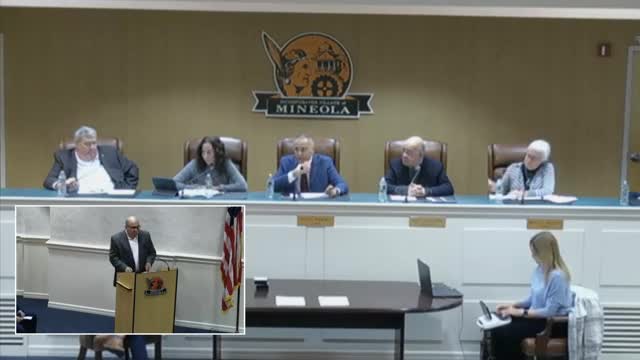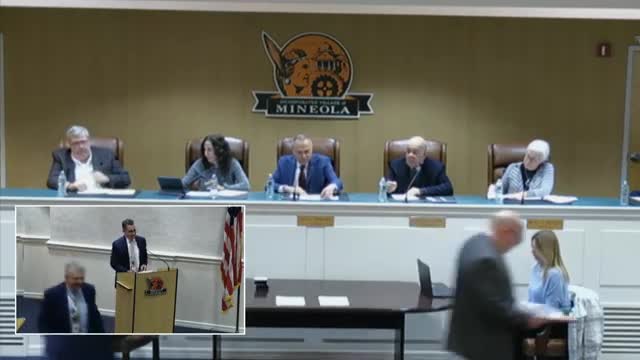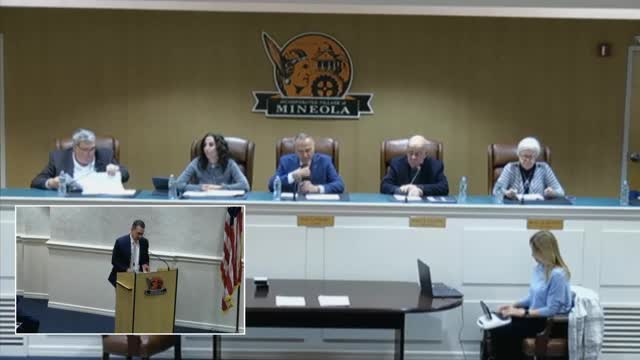Article not found
This article is no longer available. But don't worry—we've gathered other articles that discuss the same topic.

Votes at a glance: Mineola trustees approve budget and authorize multiple repairs, contracts and permits

Mineola requests $426,000 in CDBG funds for fire-safety upgrades, lighting and signage; officials expect smaller award

